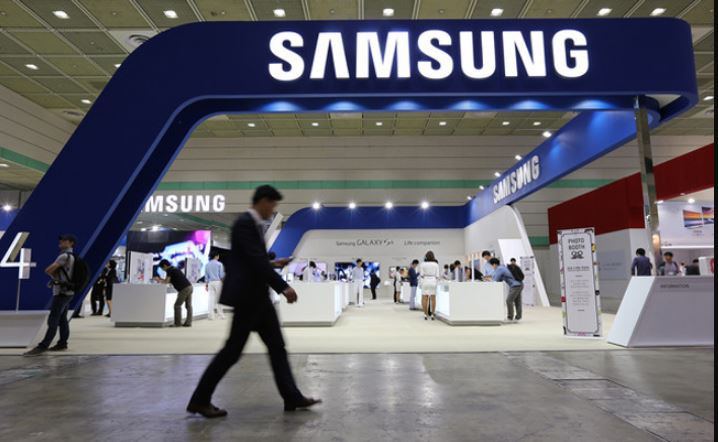(Xinhua) : South Korea's tech firm Samsung Electronics saw a double-digit fall in last year's earnings as weaker global demand for locally-made semiconductors led to a deficit in the chip-making division, the company said Wednesday.
Samsung's consolidated operating profit dived 84.9 percent over the year to 6.57 trillion won (4.9 billion U.S. dollars) in 2023. It marked the lowest in 15 years since 2008 when the global financial crisis roiled the world economy.
Revenue dipped 14.3 percent to 258.94 trillion won (194.3 billion dollars), and net income tumbled 72.2 percent to 15.49 trillion won (11.6 billion dollars) last year.
In the October-December quarter alone, operating profit plunged 34.4 percent to 2.82 trillion won (2.1 billion dollars) compared to a year earlier.
It missed market expectations of about 3.9 trillion won (2.9 billion dollars).
Revenue shrank 3.8 percent to 67.78 trillion won (50.9 billion dollars), and net income dropped 73.4 percent to 6.34 trillion won (4.8 billion dollars) in the fourth quarter.
Samsung's chip-making business recorded an operating loss of 2.18 trillion won (1.6 billion dollars) on consolidated revenue of 21.69 trillion won (16.3 billion dollars) in the fourth quarter.
The semiconductor business kept an operating loss for the fourth consecutive quarter, totaling a loss of 14.87 trillion won (11.2 billion dollars) in the whole year of 2023.
The fourth-quarter memory chip business showed recovery compared to the previous quarter on the back of strong demand for chips used for mobile devices and PCs and the recovering server demand amid an expanded investment in generative artificial intelligence (AI), the company said.
The system LSI business saw its improved earnings in the fourth quarter on inventory adjustments, but the foundry business logged a fall in earnings due to a delay in global economic recovery.
Samsung's display panel unit posted an operating profit of 2.01 trillion won (1.5 billion dollars) on revenue of 9.66 trillion won (7.3 billion dollars) in the October-December quarter.
The mobile display business showed better performance in the fourth quarter compared to the prior quarter thanks to a slightly higher demand for smartphones, while the large panel business narrowed losses owing to seasonal TV demand by the end of the year.
Samsung's mobile phone and networks division registered an operating profit of 2.73 trillion won (2.1 billion dollars) on revenue of 25.04 trillion won (18.8 billion dollars).
The mobile phone business saw a slide in both sales and profit in the fourth quarter compared to the prior quarter amid lower smartphone sales, affected by the fading of new product effects from flagship models launched in the third quarter.
The company said that it aimed to lead the AI smartphone market by integrating the Galaxy AI into the Galaxy S24 series. Samsung's TV and digital appliances unit logged an operating loss of 50 billion won (37.5 million dollars) on revenue of 14.26 trillion won (10.7 billion dollars) in the fourth quarter.
Overall TV demand weakened on a yearly basis due to worsened consumer sentiment in major markets, while costs increased amid intensified competition, Samsung noted.
In 2023, Samsung's capital expenditure totaled 53.1 trillion won (39.9 billion dollars), including 48.4 trillion won (36.3 billion dollars) spent in the semiconductor unit and 2.4 trillion won (1.8 billion dollars) in the display panel division. Enditem






















